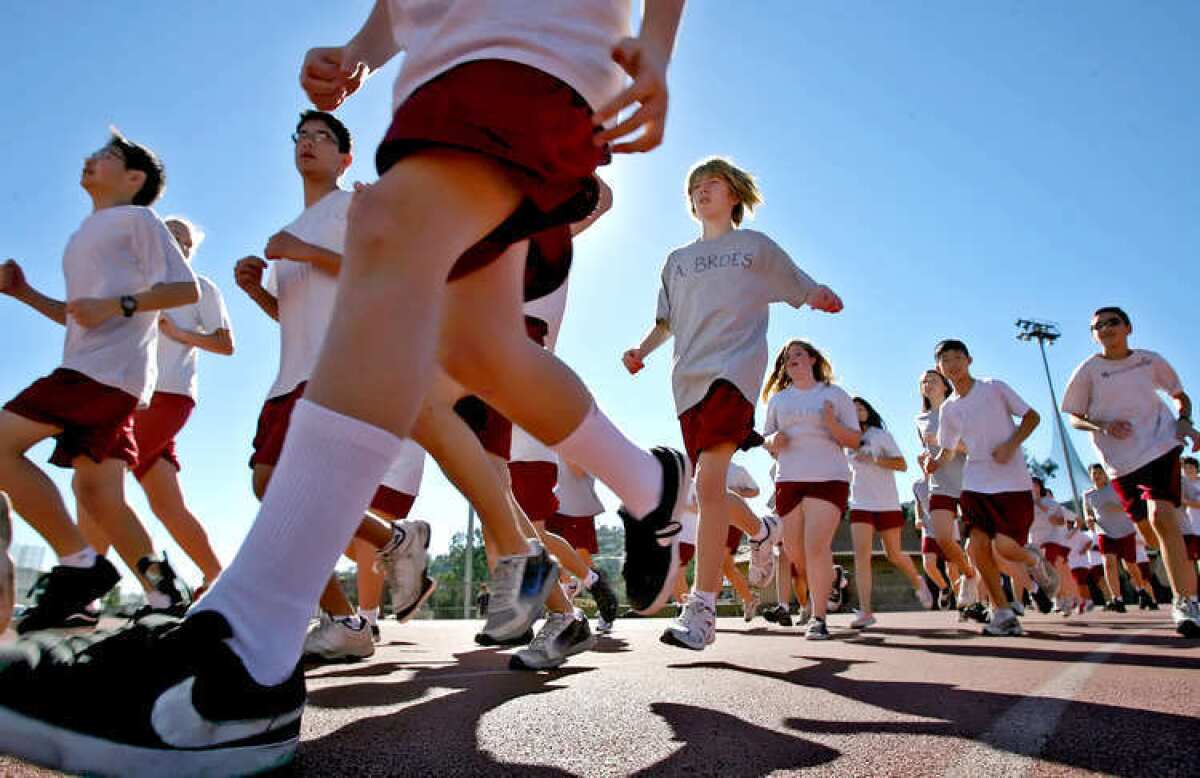The Focused Student: Maintaining the momentum during winter break

- Share via
Winter break — what a wonderful time of the year! We started with a fresh start to the school year, had a wonderful mix of good times and study times, then finished with a flourish as the gateway to a well-earned holiday break.
Now comes the hard part for all students and teachers: the second semester. There are fewer breaks, colder, gloomier weather, colds and flu going around, and not as much excitement. Yet students need to somehow sustain the motivation and momentum they generated at the start of the school year.
One of the chemical keys to motivation is dopamine, a chemical made in the brain and released when our brains and bodies show an interest in things. It’s the feel-good chemical that is released when we meet challenges, interact with peers, exercise, laugh or listen to music, among other things. Without the release of dopamine, maintaining momentum and motivation is a lot more difficult. Dopamine also stabilizes our moods, increases attention and helps us learn.
Outside sources such as regular exercise and sufficient sleep can help the body produce dopamine. So can avoiding high-fat diets, sugar, caffeine and stress. That’s the first part: producing enough dopamine. The second part is releasing the dopamine into the brain to trigger motivation and attention.
Several things will release dopamine, such as meeting desired challenges, interacting with peers, movement, humor or listening to music. How did my son and daughter accomplish much of their homework? Listening to music. Doesn’t seem to make much sense, but music released the dopamine and helped them focus on their homework.
As parents, our job is to make sure our children have every opportunity to “produce” dopamine. Think about the best ways to provide access to exercise, good diet, sleep and time to relax and enjoy life with humor, music and family. Parents with younger children can supplement with field trips that correspond to the lessons being taught in school.
Teachers, too, have their work cut out for them during the second semester, when they tend to battle the same challenge — motivation. Switching up the classroom can help, as can continuing some hands-on learning with a couple of group projects, adding in a field trip or speakers.
One way to help students stay motivated is by having them invest in their own learning. Some of the best teachers I know ask students to write down two or three things they want to learn during the next semester. This provides the teacher an opportunity to steer lessons and inquiry to topics of interest and then explore these together with each student.
Finally, get your child help if it’s needed. If your student is struggling academically or emotionally, seek professional assistance before the situation becomes overwhelming for your child, which can happen more easily in the doldrums of winter when it’s a long look back to the excitement of the new school year and a long look ahead to summer.
Happy New Year. Here’s to a good and successful 2020 for all!
